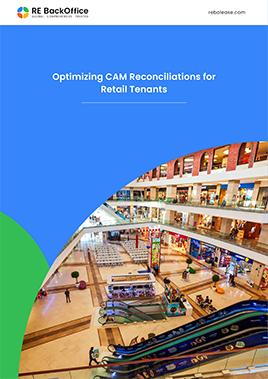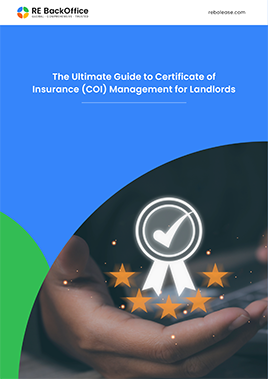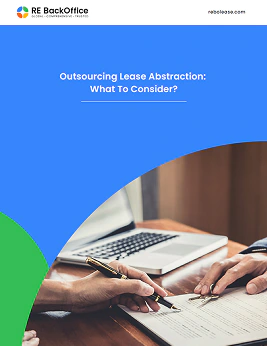
Lease abstraction is a critical process for property managers, landlords, corporate tenants, and legal teams, helping them summarize key lease terms, financial obligations, and compliance requirements. However, manual lease abstraction is time-consuming, prone to errors, and inefficient for businesses managing large lease portfolios.
With advancements in AI in lease abstraction, organizations can now automate data extraction using lease abstraction software that leverages Natural Language Processing (NLP), Machine Learning (ML), and Optical Character Recognition (OCR). These technologies enable AI-powered lease abstraction tools to process lease agreements faster, with improved accuracy and minimal human intervention.
This article explores how AI is transforming lease abstraction, the benefits of automation, key challenges, and the future of AI-powered lease management.
How AI is Revolutionizing Lease Abstraction
1. AI-Powered Data Extraction
Traditional lease abstraction requires manual review of lease agreements to extract important details like rent terms, renewal options, and financial clauses. AI in lease abstraction automates this process through NLP and ML algorithms, ensuring fast and accurate data extraction.
With AI-powered lease abstraction software, businesses can:
- Identify and extract lease start and end dates, base rent, and escalation clauses.
- Recognize landlord and tenant obligations without manual intervention.
- Summarize critical legal clauses like termination rights, subletting, and maintenance responsibilities.
- Convert lease data into structured formats for easy analysis and reporting.
By automating data extraction, lease abstraction tools eliminate manual errors and provide structured, searchable, and reliable lease summaries.
2. Optical Character Recognition (OCR) for Lease Documents
Many lease agreements are stored as scanned PDFs, images, or even handwritten documents, making manual data extraction difficult. Lease abstraction software equipped with OCR technology can convert these non-editable files into machine-readable formats.
How OCR Enhances Lease Abstraction:
- Transforms scanned lease documents into digital text.
- Recognizes different fonts, handwritten notes, and poor-quality scans.
- Improves accessibility by making lease documents searchable and editable.
Once converted into readable text, AI in lease abstraction processes the information using NLP algorithms, ensuring accurate lease data extraction.
3. Machine Learning for Smarter Lease Abstraction
Machine Learning (ML) allows lease abstraction tools to continuously improve their accuracy. As AI processes more lease agreements, it learns from patterns and refines its data extraction capabilities.
Advantages of ML in Lease Abstraction:
- Adapts to different lease formats and legal terminologies.
- Enhances predictive capabilities to identify missing or inconsistent data.
- Reduces dependency on human reviewers, improving speed and efficiency.
Over time, lease abstraction software becomes smarter, making lease management more efficient and reducing the need for manual corrections.
Key Benefits of AI-Powered Lease Abstraction
1. Faster Lease Processing
- AI-powered lease abstraction tools can extract data in minutes, compared to traditional manual processes that take hours or days.
- Businesses can process thousands of lease agreements simultaneously, improving operational efficiency.
2. Enhanced Accuracy and Compliance
- AI eliminates human errors, ensuring precise and consistent lease abstraction.
- Lease abstraction software ensures compliance by accurately capturing critical clauses and financial terms.
3. Cost Savings and Productivity
- Reduces labor-intensive tasks, lowering operational costs.
- Allows legal teams and property managers to focus on strategic decision-making instead of manual data entry.
4. Scalability for Large Lease Portfolios
- AI in lease abstraction makes it possible to handle high volumes of leases without additional resources.
- Businesses with multiple properties across different locations can efficiently manage leases at scale.
5. Better Decision-Making with Structured Data
- AI converts unstructured lease data into structured formats for reporting and analytics.
- Lease abstraction software enables real-time insights into lease obligations, helping businesses make data-driven decisions.
Challenges of AI in Lease Abstraction
Despite its benefits, adopting AI-powered lease abstraction tools comes with certain challenges:
- Data Variability: Lease agreements differ in structure, terminology, and clauses, requiring AI models to be trained on diverse datasets.
- Integration with Existing Systems: Businesses must ensure that lease abstraction software integrates with their lease management platforms for seamless data flow.
- Legal and Compliance Risks: AI-generated lease summaries still require human validation to ensure compliance with local regulations and legal interpretations.
Overcoming these challenges requires ongoing AI model training, human oversight, and seamless integration with existing lease management systems.
Future of AI in Lease Abstraction
The future of AI-powered lease abstraction is driven by continued advancements in NLP, ML, and automation. Here's what to expect:
- AI-Driven Predictive Analytics: AI will not only extract lease data but also predict financial trends, lease risks, and renewal opportunities.
- Smart Lease Management Platforms: Future lease abstraction software will integrate with property management systems to automate end-to-end lease processing.
- Blockchain for Secure Lease Storage: AI and blockchain technology will enhance data security and transparency in lease agreements.
- AI Chatbots for Lease Queries: Businesses will use AI-driven chatbots to answer lease-related queries instantly, improving lease management efficiency.
As AI technology evolves, lease abstraction tools will become more intelligent, reducing the need for manual intervention and making lease management more strategic and data-driven.
AI is transforming lease abstraction by automating data extraction, improving accuracy, and enhancing efficiency. Businesses using AI-powered lease abstraction software can process lease agreements faster, reduce costs, and ensure compliance with minimal human intervention.
With advancements in AI in lease abstraction, the future of lease management is moving towards full automation, predictive analytics, and seamless integration with property management platforms. Organizations that leverage AI-powered lease abstraction tools today will gain a competitive edge in managing their lease portfolios efficiently and effectively.


